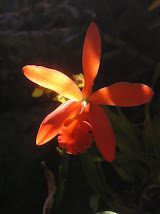Pacific analysts must become more creative in their approach to thinking about Fiji and its future, an academic from The Australian National University (ANU) argued in Canberra. Dr Katerina Teaiwa, Pacific Studies Convenor at ANU, says that solutions for Fiji won’t be found in adversarial thinking, framed around a pro or anti-military viewpoint. She says that more lateral, creative thinking is required to map out a better future for the nation. “We need more options than just ‘for or against’,” Dr Teaiwa says. “We cannot just roll out a series of economic or political facts which paint the bleak picture we expect to see. We have a responsibility to use these and other contextual knowledge to go further to provide more positive readings that are actually helpful for the people of Fiji as a whole,” she said.
“Anyone who lives in or is from Fiji knows that the situation is not completely hopeless. Fiji requires more diversity amongst, and collaboration between, its experts so that the situation on the ground is illuminated from multiple spheres and through multiple lenses. If we want freedom of speech, democracy and diversity on the ground, we should apply the same principles in terms of the voices and sectors we draw upon to understand the situation.” Dr Teaiwa argues that there is a need to look more closely at modes of communication, cultural institutions and other sectors which are commonly left out of the dominant political and economic discussions about Fiji. The battle around race politics is played out as much in the realm of popular perception as in government policy. Popular perception is shaped not just by NGOs, newspapers, church ministers, business and political party leaders, or military rulers, but by popular culture and what islanders call the ‘coconut wireless’. “The areas of heritage, sports, cultural policy, festivals, music, and the performing and visual arts require closer examination as they increasingly offer economic and political avenues and tools for Fiji islanders. Most importantly, as indicated by the growing importance of cultural diplomacy internationally, these arenas provide real nuts and bolts for positive nation building, regional harmony, cooperation, and peace.” Dr Teaiwa presented her research at the Parliament House yesterday. Further information at Dr Teaiwa's page






























No comments:
Post a Comment